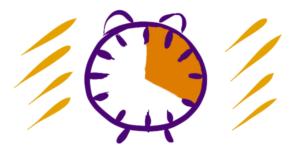Lehet kifogásolni az irányt, a konkrét célpontot, az útvonalat, az odajutás módját, a megállók mennyiségét és hosszúságát, a befektetni szükséges energiát, nem beszélve a külső körülmények sokaságáról. Aztán arra gondoltam, hogy az elöl haladónak kell a felmerülő akadályokra, nem várt eseményekre, problémákra valahogy először reagálni, és ahol gyors döntés szükségeltetik, ott felvállalni a hibázás kockázatát és a döntés felelősségét. Folyamatosan figyelemmel kell kísérnie, hogy a mögötte haladókkal mi a helyzet: miként boldogulnak és hogyan érzik magukat mindeközben. Valahogy balanszíroznia kell az eltérő igények és preferenciák között. Aki a követők között van, annak mindezekkel nem nagyon szükséges törődnie.
Viszonylag gyorsan sikerült arra a következtetésre jutnom, hogy szinte mindenki megérdemel egy kalapemelést, aki vállalja, hogy ő menjen elöl, pláne ha machetával kell ezt megtennie a csalitosban. Leszámítva természetesen azokat, akik vezetői szerepükkel visszaélnek, és arra használják a pozíciójukat, hogy másokat becsapjanak, kihasználjanak, félrevezessenek, vagy gátlástalanul manipuláljanak. Bár ez utóbbiak nagyon zajosak és feltűnőek, gyanúm és reményeim szerint ők vannak kisebbségben.
A vezetői szerepvállalás nem függ se pozíciótól, se kinevezéstől, se másfajta formális felhatalmazástól. Aki azt mondja, hogy “Srácok, szedjük már össze ezt a sok szemetet, ami szét van szórva a játszótéren!”, vagy azt, hogy “Rendelek színházjegyet, ki csatlakozik?”, esetleg azt, hogy “Hívjuk el az új kollégát magunkkal ebédelni!”, kétségkívül vezetőként viselkedik, függetlenül attól, hogy mi van a névjegykártyájára írva, ha van neki egyáltalán olyan.






